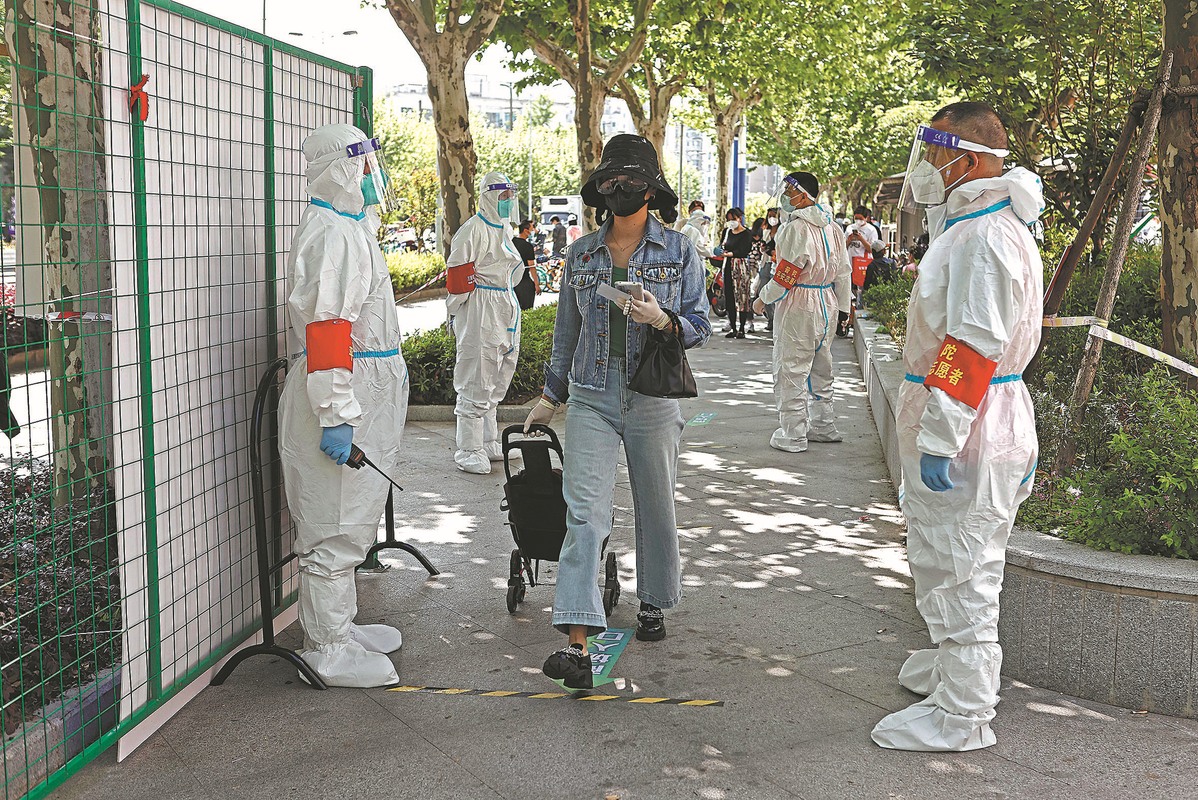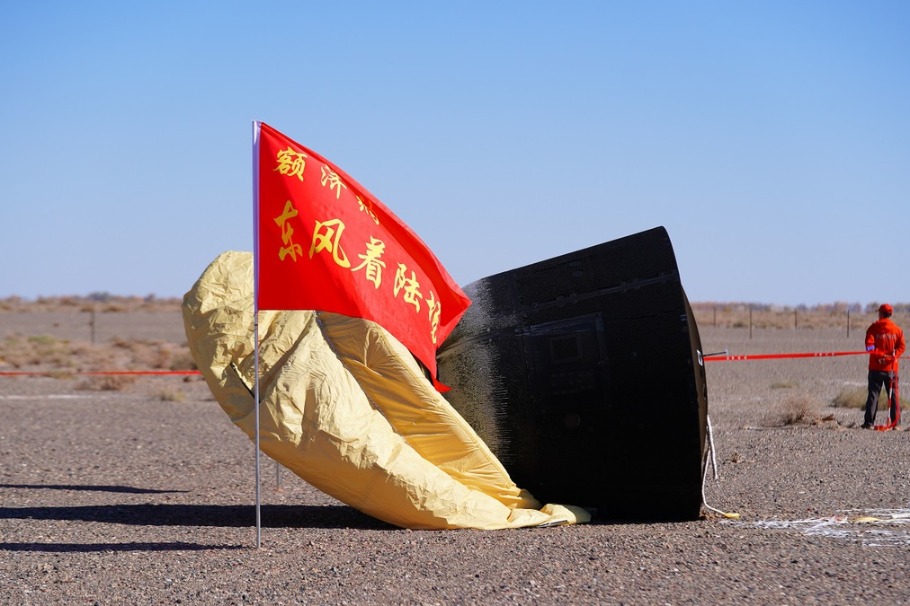'Big white' angels helping China fight the virus


Baymax, an angel-like warm inflatable computerized robot (and a fictional superhero) in Disney's animated feature film Big Hero 6, has the same features as dabai, or "big white", the ubiquitous health monitors clothed in white personal protective equipment called hazmat suits.
These dabai, many of whom are medical or grassroots-level government workers or volunteers from other walks of life, have been helping conduct nucleic acid testing, distribute food, provide people in quarantine with necessities, and perform other anti-pandemic tasks.
With the resurgence of the novel coronavirus, especially the more infectious Omicron variant, in some Chinese cities including Beijing and Shanghai, the dabai have become a vital part of China's fight against the pandemic.
Almost two and a half years into the COVID-19 pandemic, people still cannot imagine how to get by without the help from the dabai. No wonder the very coining of the term dabai manifests people's gratitude and fondness for them — and the death of a dabai due to overwork in Shanghai, the worst hit city by resurgence of the virus, has left many heartbroken.
Most people thank the dabai for their dedication to and sacrifice for the country's well-being.
However, some people are weary of the pandemic. For instance, in Shanghai, many residents have been under lockdown for a month. And in Beijing, most people in Chaoyang district have been asked to work from home from Thursday, the first working day after the May Day holiday, and strict anti-pandemic measures implemented in the whole city.
The strict anti-pandemic measures have had a huge impact on many people's lives, especially on those in the catering, sales, transport and tourism sectors. However, the government has taken measures to help the affected sectors and people in general, but more efforts are needed. It's very difficult to strike the right balance between pandemic control and economic development, though.
Yet if the pandemic is not contained, economic development could encounter more challenges.
The negative impacts of the pandemic are not the dabai's faults, however, for they have been honestly performing their duties to restore normalcy as early as possible. Just think in the ongoing mass nucleic acid testing in Beijing, how many dabai work throughout the day despite perspiring and feeling uncomfortable in their hazmat suits because of the rising temperatures with the onset of summer.
Nevertheless, some misconceptions have arisen about these workers on the frontline of the fight against the virus. Some previous unverified video clips of some dabai quarreling, even clashing with residents and beating a pet dog to death in some cities have sparked public outrage.
Confrontations and conflicts can be easily triggered between health workers and residents while people have become impatient and irritated for having to stay under lockdown for a long time.
Besides, since some of the pandemic-control workers haven't received any professional training for they had to be pressed into duty immediately, they may be feel confused and cannot properly deal with different types of emergencies.
People should understand the stress the dabai are working under. But this is not to say that those violating the laws and rules should not be punished accordingly.
Moreover, local governments need to improve the delivery services so vegetables and other food stuff, and medicines and medical care can be provided for residents in a timely manner to ease their tensions and thus prevent confrontations between the pandemic control workers and the public.
Although, in general, the pandemic control workers are loved and respected by the Chinese people, specific rules on exchanges between the dabai and residents would help clear a lot of confusion and prevent frictions, making life easier for all.
The author is a writer with China Daily.
If you have a specific expertise, or would like to share your thought about our stories, then send us your writings at [email protected], and [email protected].


































